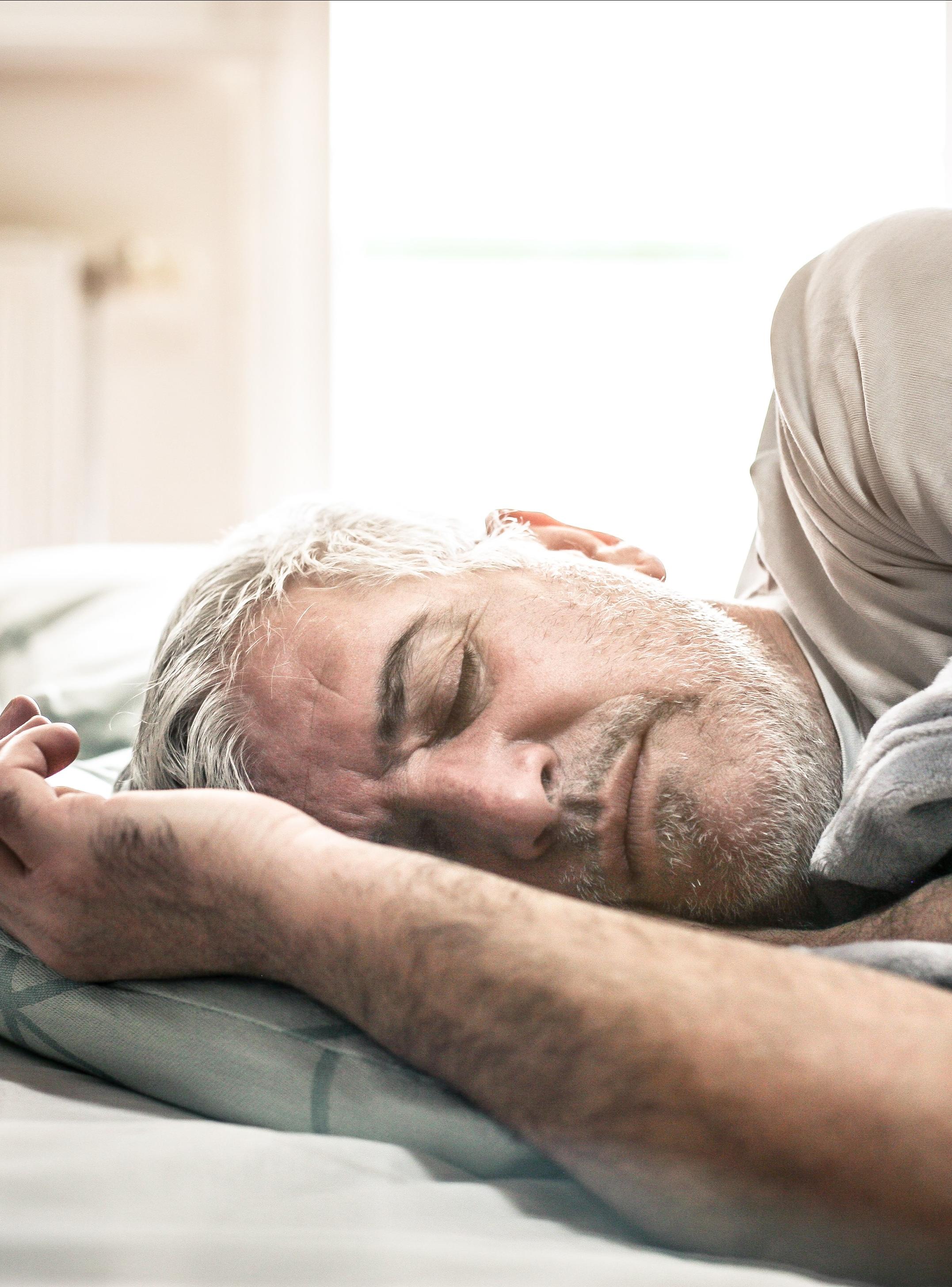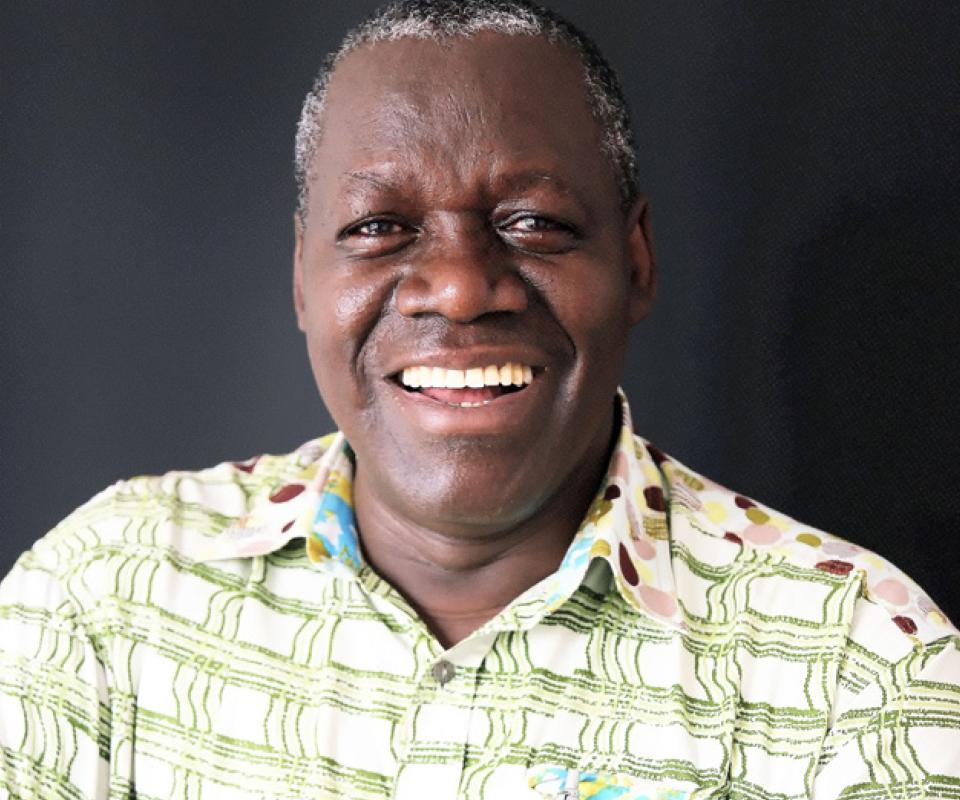
Soft sound improves sleep quality in dementia
The importance of good sleep cannot be overstated. This is especially true for people with (or at risk of developing) dementia. What the relationship is between their sleep quality and the progression of their disease is a question Prof. Dr. Maarten Van Den Bossche (KU Leuven/UPC KU Leuven) is trying to answer. Supported by research funding from multiple Funds dedicated to neurodegenerative brain disorder research, managed by the King Baudouin Foundation, he has shown that deep sleep in people with Alzheimer's disease can be improved through acoustic stimulation.
One of the challenges faced by people with dementia is the loss of sleep quality; they clearly sleep less well than healthy older adults. Specifically, the deep sleep phase is less frequent and/or shorter.
Prof. Dr. Maarten Van Den Bossche, a psychiatrist specializing in care for elderly patients, also works as a sleep specialist. "I’m interested in studying this further and hopefully improving it for two reasons," he explains. "On the one hand, poor sleep leads to additional problems for patients, which also affects their caregivers, often resulting in institutionalisation. On the other hand, we wonder whether poor-quality deep sleep could worsen the disease or perhaps even contribute to its development."
Deep sleep serves several important functions for our body and brain: it helps us wake up feeling rested, reduces daytime sleepiness, strengthens memory, supports immunity, and aids in tissue repair. Moreover, this phase may help remove waste from the brain. "It is possible that substances like amyloid beta are cleared from the brain during deep sleep," clarifies Prof. Van Den Bossche. "This has been directly shown in animals, and indirectly in humans: when you deprive (young) people of sleep for one night, you immediately see a buildup of amyloid beta. The protein may not be cleared, or may be cleared to a lesser extent, compared to a full night of sleep." This waste removal happens via the so-called glymphatic system.
Amyloid beta is one of the proteins (along with tau) that accumulate in the brains of people with Alzheimer's. It is therefore definitely worth studying the connection between this accumulation and their sleep quality.
Improve sleep quality
"What we already knew from research in healthy adults is that deep sleep can be improved with light acoustic stimuli, sounds that don't wake you up but which your brain responds to. Our team tested this for the first time on people with Alzheimer's, over two weeks, and in their own beds, not in a sleep laboratory where sleep is different."
Van Den Bossche received financial support from several Funds managed by the King Baudouin Foundation. All of these Funds support research into innovative ways to improve the quality of life and care for people with neurodegenerative diseases such as Alzheimer's or Parkinson's, and to address the common side effects of these diseases. With this support, a study was set up using easy-to-use headbands that measure brain activity during sleep and administer acoustic stimuli through bone conduction.
Over the course of a year and a half, fifteen people with Alzheimer's participated in the trial. "It's important that this happens exactly at the right moment in the brain's activity wave," says Van Den Bossche. "Otherwise, there’s no effect, or even a counterproductive effect."
"The headbands were well tolerated, which was good news. When we analysed the data, we saw a clear improvement in deep sleep. During deep sleep, large quantities of neurons alternate between being silent and active in a synchronised manner. This results in slow waves on the EEG, hence the term ‘slow wave sleep.’ The acoustic stimulation made this phase longer, and the waves were higher and deeper, which may indicate improved activity."
Promising results
However, there were significant individual differences between participants. "This is likely partly because the acoustic stimulation with this headband starts only after 15 minutes of slow wave sleep. For example, if someone has a very poor night, they may only have 12 minutes of deep sleep at one point, and 8 minutes at another, meaning no stimulation occurs. Our hypothesis is that acoustic stimulation will have more of an effect in the early stages of the disease when more slow wave sleep is still present."
While neither the patients nor their caregivers noticed a significant difference in daytime fitness during the two-week test period, the measured effects in the brain were stronger than expected and very promising. "The glymphatic system for waste removal, the circadian rhythm... these are topics that have received much more attention in recent years, especially regarding their impact on (sports) performance, cancer, or depression. These areas of research are definitely worth exploring further. Sleep changes are also noticeable early in the dementia process, long before other symptoms appear, which offers possible opportunities for early intervention."
Prof. Van Den Bossche aims to conduct further research with a larger group of participants and preferably in collaboration with other research centers to validate the promising results of his research for practical application. "Unfortunately, the headbands are no longer available for sale as wearables on the consumer market due to commercial decisions made by the company that manufactured them. We are now exploring with engineers whether we can develop a similar device ourselves. In any case, it needs to be really easy to use and comfortable to wear, so people can wear it long-term at home during the night."
The initial study is an important step toward moving forward on this path. "In the search for new research tools, there is often an expectation that you already have pilot data. That’s why it’s great that the King Baudouin Foundation supports bold research outside of the traditional approaches."
About the Funds for neurodegenerative brain disorder research
Managed by the King Baudouin Foundation, the Funds Malou Malou, Perano, Georgette Paulus, JMJS Breugelmans and Gabrielle, François & Christian De Mesmaeker support scientific research into neurodegenerative diseases of the brain such as Parkinson's disease and Alzheimer's disease.
"On the one hand, poor sleep leads to additional problems for patients, which also affects their caregivers, often resulting in institutionalisation. On the other hand, we wonder whether poor-quality deep sleep could worsen the disease or perhaps even contribute to its development."
These 5 Funds launched a joint call and specifically want to support projects that contribute towards better treatment and care, using non-pharmacological interventions, for older people who have a neurodegenerative brain disease. The total amount of 450.000 euro was allocated to this call to support up to three projects.
Other stories
Inspiring engagement!

The experience that led to the role of liaison officer in Africa
Europe and International
"You need integrity and curiosity."

‘South-South’ cooperation to provide better help for street children
Europe and International
“We are proposing a programme to humanise the street.”

Sportswitch: THE recycling center for sports clothing
Inclusive transition
“We want to raise awareness about the sustainability of sports clothing.”